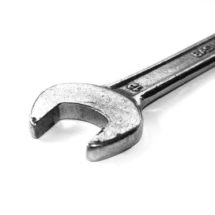


Friday, May 1st, 2020
According to a recent Philadelphia Inquirer article, mortgage lenders have recently begun raising minimum credit scores, requiring higher down payments, triple-checking employment status, and even eliminating certain loan types altogether.
As job loss reaches staggering heights due to the coronavirus pandemic, lenders are worried that high unemployment numbers will translate into mortgage defaults and late payments down the road.
Chase recently announced that it would raise its minimum credit score requirement to 700 and hike the minimum down payment up to 20 percent, from 3.5 percent. Lenders large and small across the country are following suit.
Wells Fargo and US Bank both adjusted their minimum score requirement to 680 (including for FHA and VA loans, which typically feature credit-score requirements as low as 580), while Flagstar Bank increased its minimum to 640.
Other lenders have temporarily stopped offering FHA loans, while also increasing minimum FICO score for borrowers. Of the lenders who are still offering jumbo loans (loan amounts > $510,400), rates are considerably higher and 20% down payments are required.
Credit requirements have gotten tighter across the board. A report from the Mortgage Bankers Association (MBA), the Mortgage Credit Availability Index (MCAI), shows that mortgage credit supply fell 16% in March, the lowest it’s been since June 2015.
Non-traditional mortgages (known as ‘Non-QM’ or non-qualified mortgage loans) that normally allow for approvals via alternative income documentation (ie bank statements vs pay stubs) are no longer available without down payments > 25%.
This month’s MCAI highlights the large retreat from jumbo and non-QM investors due to a sharp drop in liquidity. Lenders are making credit criteria changes to account for the increased likelihood of forbearance and defaults, as well as higher costs.
Lenders are also checking employment status several times throughout the loan process, even calling employers the day before the loan is funded to ensure the borrower is still employed.
As people work from home, borrowers face challenges in locating the appropriate person to verify employment. This can slow down the loan process significantly, so lenders are asking borrowers to make sure their employer is reachable during this disruption to the normal workflow.
New guidelines may jolt first-time homebuyers
Stricter requirements, including larger down payments and higher credit scores, will make it difficult for some folks to qualify for a mortgage, particularly first-time homebuyers. About 80% of FHA loans, for example, are taken out by first-time homebuyers. Because these loans have less stringent requirements, such as lower down payments and credit scores dipping into the mid to high 500s, there’s a correlation between first-time buyers and low down payments, high LTVs, and lower credit scores.
The average FICO score for Americans in 2019 was 703, according to a report by Experian. However, that average falls below 700 for every age group under 50, which will affect the ability of Gen Xers and millennials, the largest share of homebuyers, to get a mortgage.
Here’s how those average FICO scores break down by age group:
— Ages 60+ = 749
— Ages 50-59 = 706
— Ages 40-49 = 684
— Ages 30-39 = 673
— Ages 20-29 = 662
What should mortgage shoppers do
The main problem for homebuyers with below-700 credit scores, high LTVs and low down-payments is that lenders are starting to shy away from any perceived risk. As forbearance requests roll in, the strain on the mortgage industry amplifies. And there’s no telling when we’ll begin our trek back to pre-coronavirus days.
Until the capital markets can stabilize, which certainly can be realized by the larger banks, borrowers will be in for a lengthy ride, according to the Inquirer article. In past down cycles, including the last 2008 crash, it has been shown that confidence was typically restored within 12 to 16 months. However, the current events are unprecedented, and there is no real certainty as to what the markets may or may not do.
The next steps depend on what position you’re in financially and how secure your employment is. For borrowers and buyers whose situation hasn’t been disrupted by the coronavirus, this could be a good time to improve your credit score and save for a larger down payment, if your budget allows.
Those who have less secure employment or have been furloughed or laid off might need to put their home-buying on pause until this national emergency is over.